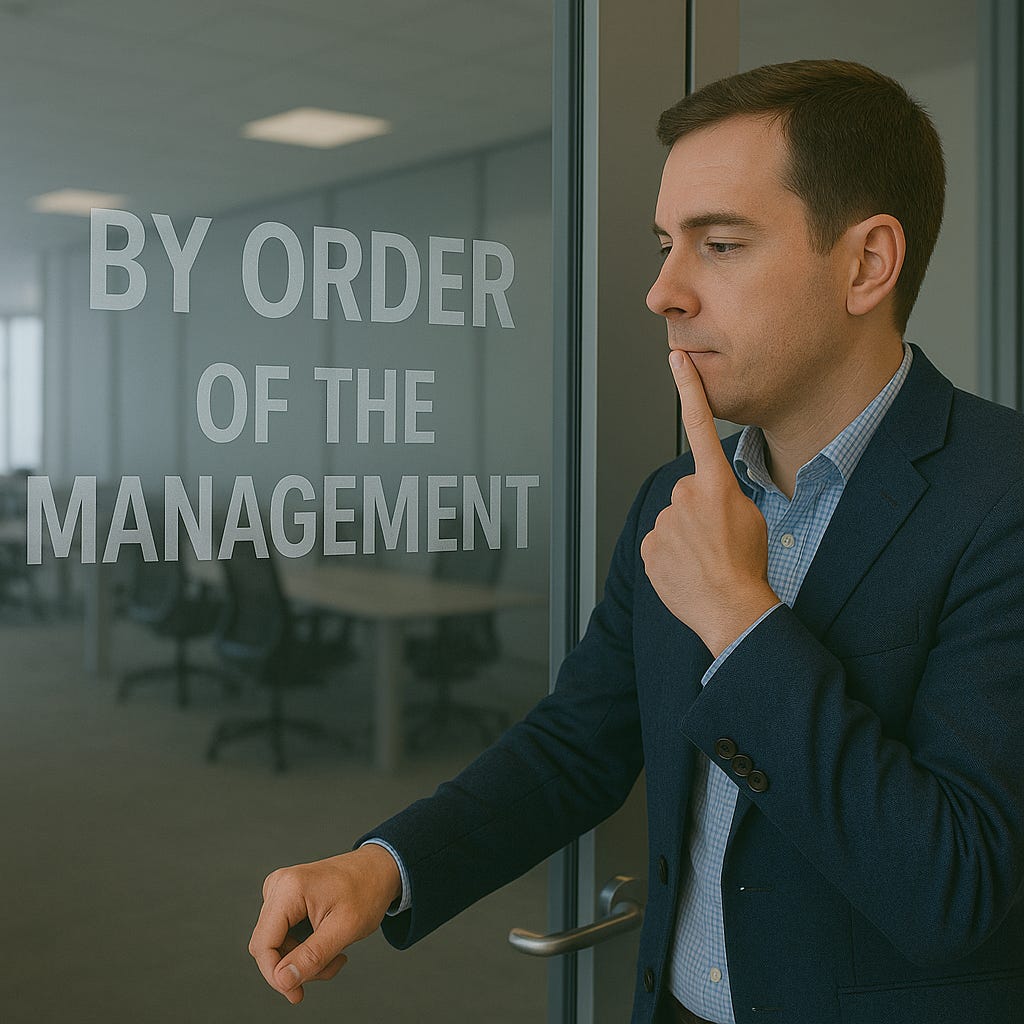Don’t forget to be micro-nice at work
A group of overpaid professors think they can change the world by encouraging phony acts of kindness and inclusion in the workplace. From the National Post, 26 May, 2025.
As Prime Minister Mark Carney settles into his new role, bathing in the afterglow of the Donald Trump-fuelled good fortune that secured his narrow victory against a surging Conservative wave, the hope that Canadian institutions will undergo ideological reform is now rapidly fading.
There’s a good deal that’s been written in recent times about the prevalent social pathology that beseeches us all to “just be kind.” Advocates of this superficially anodyne sentiment — one that is difficult in our modern era to contradict without being labelled a "bad person" — have ushered the tiresome concepts of diversity, equity and inclusion (DEI) into every corner of our lives.

In his bestseller, The Parasitic Mind, Gad Saad identifies this status quo as having been motivated in large part by the collective suicidal tendencies of a swathe of people who have been infected with an ideological virus. The parasitized victims are easily identified by their consequentialist approach to life: they seek short-term rewards afforded by the stockpiling of social capital, rewards that in turn lead to career advancement and higher pay.
One symptom of this disease is the acceptance of microaggressions, an idea that has spread even as far as the science laboratory. This concept has transcended mere impoliteness or veiled prejudice and now frames every unguarded comment, every passing joke and every criticism as an affront to someone’s — anyone’s — dignity as a human being, which must then be punished with disproportionate force.
Even more hard to stomach are the non-scientist academics who are advancing dubious novel theories that intentionally feign scientific credibility by bolting prefixes like ‘micro’—a suffix they improperly understand—onto words to create new terms.
Even as leading universities hurry to divest themselves of DEI initiatives, three woke professors at the University of Toronto’s Rotman School of Management have been busy shape-shifting the social justice terrain by rapidly planting signposts announcing a repertoire of new concepts they collectively term ‘micro-affiliations,’ but might just as well be called ‘micro-niceties.’
In an article published in last month’s edition of Insights Hub, Rotman’s newsletter, professors Xian Zhao, Geoffrey Leonardelli and Soo Min Toh duly elaborate with admirably straight faces by introducing four new portmanteau categories of these micro-affiliations.

The first of these, so-called micro-celebrations, embodies the very worst kind of patronising insincerity, couched in typically stilted language. Micro-celebrations, it appears, are “deliberate expressions of … appreciation for differences in culture that can help … celebrated groups feel like their identities are acknowledged and appreciated.” In short, coworkers are expected to tip their hats throughout the year, not just on days of religious or cultural significance.
The thought of being wished a happy Pride by gullible straight coworkers who are brainwashed to sermonize about trans inclusivity—oblivious of the trans movement’s embodiment of modern-day homophobia—fills me with dread. This, then, is the ignorant majority feeding delusional bromides to gays who instinctively know better.
Similarly, according to the authors, equitable colleagues must recognize and offer accommodations to Muslims during their religious observance of Ramadan. The article even suggests workplace nods to Uyghur Muslims, a people who are undeniably oppressed in China. This conjures a mental picture of Huawei executives hotfooting into the Shenzhen office to micro-celebrate their Uyghur employees, though that's unlikely to happen any time soon.
Farcically, the authors at once argue for the foregrounding of differences while urging us that, “Instead of viewing ‘American’ as equal to ‘white,’ micro-celebration may allow members of all ethnic groups to be equally perceived as Americans.” As if any American in their right mind born after the civil rights movement would be this deranged.
When it comes to avoiding the social faux pas of mangling a foreign name, the new mot du jour is micro-normalization—small charitable acts that seek to embrace our commonalities. Unsurprisingly, the authors opt to finger-wag at anyone failing to rhyme the Arabic name "Nader" with "ladder." Yet I can attest that most Canadians can’t correctly pronounce my Anglo-Saxon Christian name, either. Yet, somehow, I’ve survived without filing a workplace grievance.
Other micro-normalizations include the insufferable habit of slapping Progress Pride stickers on office doors and wearing an orange kaftan on the National Day for Truth and Reconciliation. This is all virtue-signalling in its purest form.
Astonishingly, these professors also believe that “to engage in micro-normalization, non-African American workers may participate in Black Lives Matter protests,” revealing that these academics still think there is glory in the movement that saw corrupt executives siphon off millions of dollars to fund their private real-estate ventures.
Listed third is micro-socializing, which is academic-speak for ‘work junkets.’ The authors’ examples are sparse and comical, including going “bowling or visiting a farmers’ market on a weekend morning.” That employees might react with contempt at such forced teaming—driven by the widespread acknowledgement that work outings are excruciating—has not occurred to these bigwigs.
The final category is something called micro-affirmation. Essentially, a micro-affirmation is a compliment. The idea that we need three top-flight eggheads — two of whom cost the province nearly $693,000 a year — to remind us that complimenting your colleagues is a boon to the workplace reveals a lot about the current state of higher education.
Indeed, these brilliant minds point to compliments as a way to combat alienation—what they jarringly term “belongingness threat”—in a competitive workplace. It's an argument in pursuit of mediocrity that advocates for endless, aimless backslaps for people going about their jobs on a daily basis. How exhausting.
They conclude with the profoundly dubious prospect that micro-affiliation theory “provides a welcomed breath of positivity in approaching the world’s commitment to becoming a kinder and more caring place.” I use the word ‘dubious’ because the whole enterprise reeks of unrealistic utopianism.
The truth of the matter is that in recent years, workplaces have become far less tolerable places. They have been infused with unending diktats handed down by intellectual elites that sharpen cultural awareness and amplify sensitivities.
For the average employee, it’s more like navigating a no-man’s land fenced with razor wire. Put it this way: if these pricey Rotman professors had their way, we would all inevitably find ourselves far happier in the workplace—by order of THE MANAGEMENT




